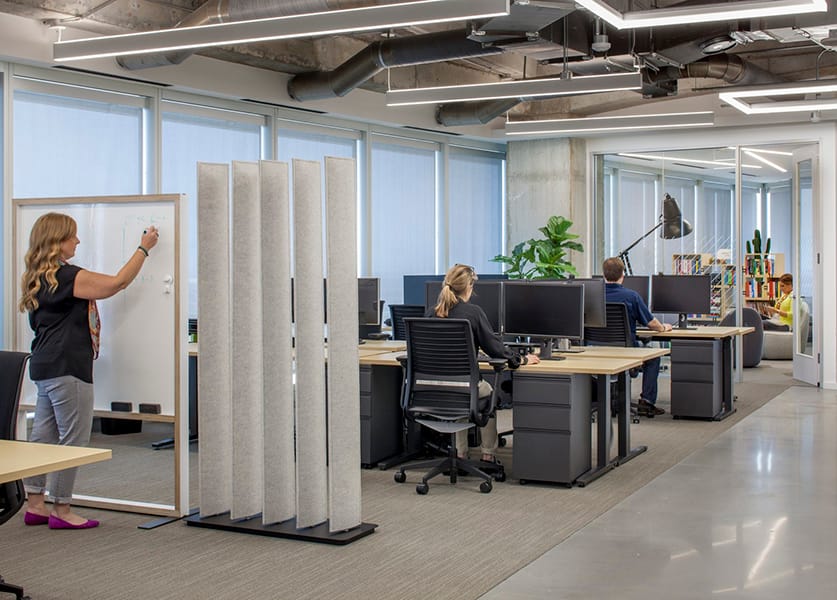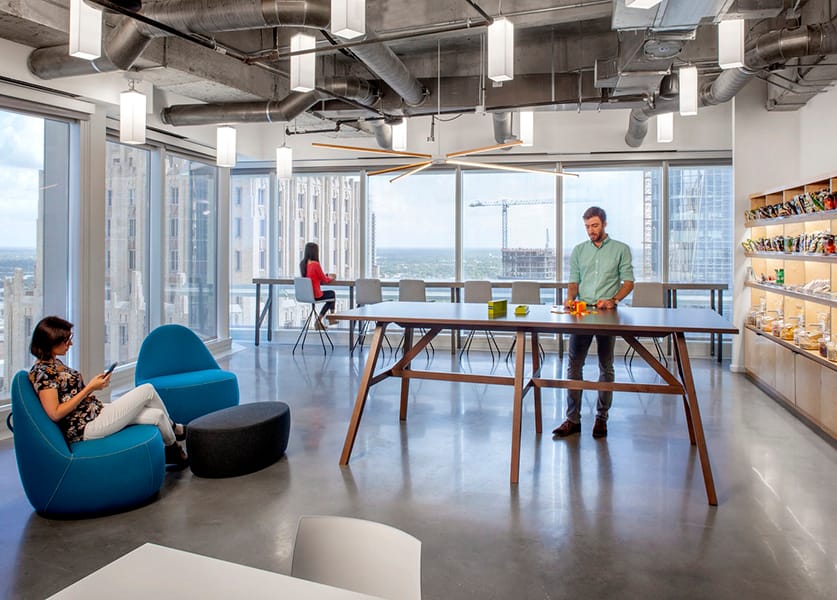As business changes generate shifts in the workplace, distinct requirements of the FinTech industry uniquely interpret these ubiquitous influencers.

A confluence of factors, including the Financial Crisis of 2008 and the Digital Revolution, have undeniably reinvented the financial market. FinTech—a portmanteau for financial technologies—continues to mature as startups and the technology groups of financial service firms serve as models for companies with digital transitions still underway.
What is FinTech?
FinTech most often refers to a variety of technological interventions within the financial sector as fiduciary institutions increasingly focus on technology and digital means for services and products. FinTech includes established institutions that adopt new technologies, as well as startups attempting to disrupt or compete with financial incumbents. This kind of competition and disruptive innovation alters the way companies do business and negatively impacts those unwilling to adapt to the use of new business models and processes.
The FinTech Workplace
This new organizational paradigm has not only signaled the dawn of a revitalized industry, but brought with it a wave of new workers who typically have not worked for financial institutions. Banks are increasingly hiring those with the skills, experience, and raw talent to take the industry to more advanced levels, where organizations can operate independently on proprietary software customized to best suit clients and customers. Some of these employees are migrating from organizations outside the financial sector, such as the tech world, while others are armed with the skills and mindsets suited for tech-savvy business approaches.

IA’s on-the-ground research into the processes, people, and relationships within financial service institutions have identified three key changes to organizational design and brand positioning that are impacting workplace design.
First, financial service providers are altering their business models and self-identifying as technology companies with banking as their primary service or product offering. Second, firms are leveraging new processes with lean innovative models to adopt agile methodologies and smarter analytics. And third, financial firms are modifying the user experience by curating transparent and interactive products that are simple to navigate yet memorable.

Based on these three organizational shifts, we recognize a new set of workplace environment priorities that better support new modes of work. Considering the top five influencers of all workplaces—Autonomy, Talent, Experience, Wellbeing, and Innovation— we explore variations of these influencers in FinTech design.
AUTONOMY. Agile methodologies for work have replaced linear and waterfall approaches. To support this structure, hackable workplaces that give end users the agency and ability to adjust space on a whim into self-organized teams and just-in-time scrum spaces are favored by FinTech.
TALENT. To compete with the Googles and Amazons of the world, financial firms are angling to hire the very best tech minds. These strategic hires are designing the seamless technology behind banking apps and require workplaces that correspond technologically.
EXPERIENCE. The workplace experience has grown increasingly relevant as interactions with clients become more important to the success of a business. In parallel with retail design and a curated visitor experience, bringing customers and clients along a company’s workplace journey can help “sell” an experience that translates to a banking experience.
WELLBEING. As perpetual connectivity and prolonged work days factor into workplace discussions around health, our clients are placing a premium on worker wellness. Culturally, clients are aiming to balance “sprints” with down time and relaxation to meet health goals. Access to daylight and view, clean and accessible drinking water, and good indoor air quality are the basic physical requirements for supporting wellness. With many clients, we have seen this extend to healthy food options, areas to “unplug,” and outdoor space where staff can clear the air, so to speak. FinTech workplaces have no shortage of such spaces and features.
INNOVATION. Co-working and community partnerships, where FinTech organizations are bringing “outsiders” in to co-create and cross pollinate ideas, have increased transparency in what has been a traditionally conservative industry that keeps data and product development close to the vest. In a business climate where change is the new constant, this kind of multidisciplinary influence helps keep the industry competitive.
IA is a global firm of architects, designers, strategists, and specialists. We focus exclusively on environments through the lens of interior architecture—a radical idea in 1984, when IA was founded. We are highly connected agents of change, committed to creativity, innovation, growth, and community.
IA is a global firm of architects, designers, strategists, and specialists. We focus exclusively on environments through the lens of interior architecture—a radical idea in 1984, when IA was founded. We are highly connected agents of change, committed to creativity, innovation, growth, and community.

